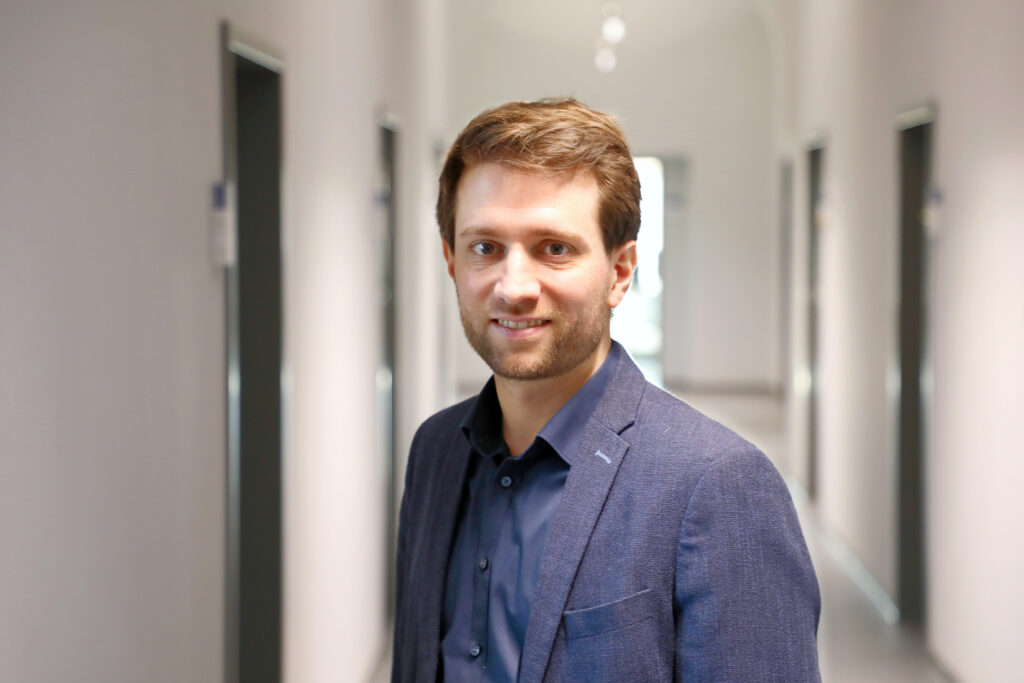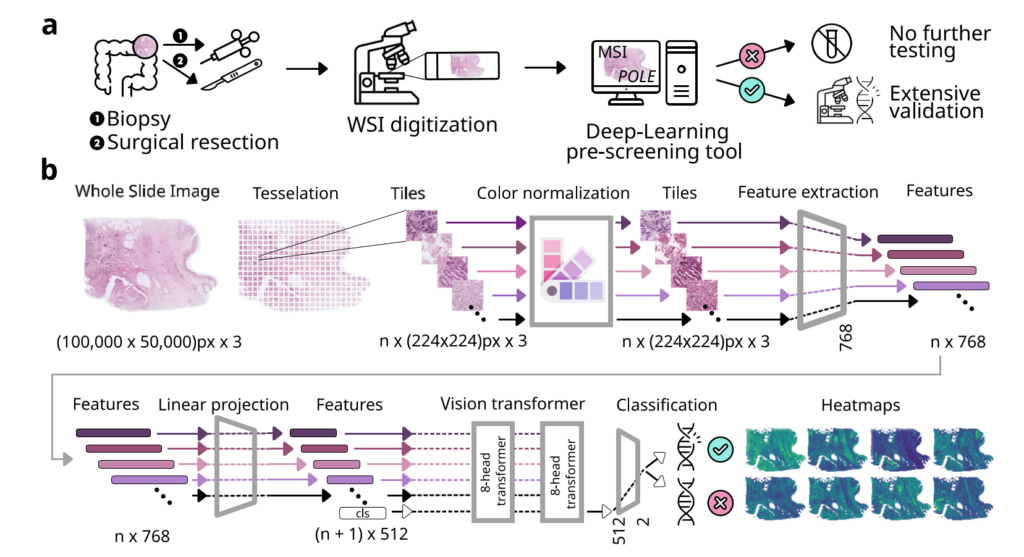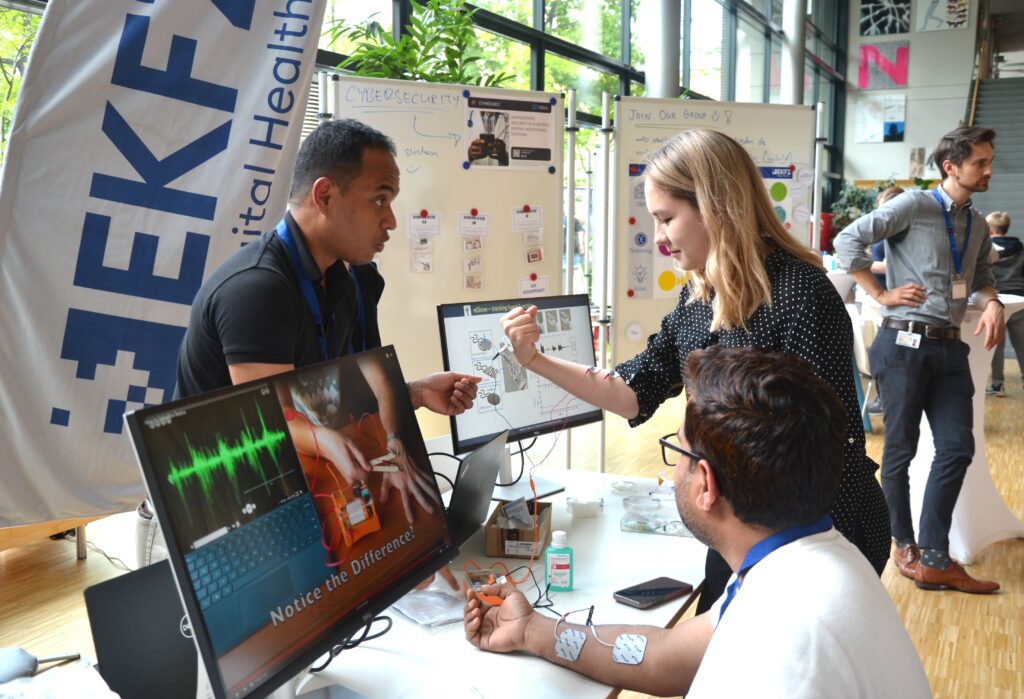Flexible suites of Digital Health Technologies: Need for tailored regulation and reimbursement

Bowel cancer is one of the most common and deadly types of cancer in Germany. Every year, around 58,000 people are diagnosed with the disease. If detected early, bowel cancer is easily curable. However, despite significant advances in screening and treatment, doctors still face challenges in diagnosis and prognosis. This is where DECADE – Decentralized artificial intelligence for diagnosis, prognostication and response prediction in Colorectal Cancer – comes in. Several German university hospitals are working together to investigate how the use of artificial intelligence (AI) and swarm learning (SL) can significantly improve the care and treatment of colorectal cancer patients in both early and advanced stages. AI is already capable of analyzing large amounts of data and recognizing certain patterns. The insights gained from this can help to better predict the course of the disease or to make more individualized diagnoses. The aim of this research project is to use AI and SL to significantly improve the treatment of colorectal cancer patients.

AI tools have so far only been used hesitantly in routine clinical practice. One reason is that data exchange between hospitals is severely restricted by legal and ethical hurdles, especially in Germany. One solution to this problem is swarm learning. With swarm learning, several institutions can jointly train medical AI models without exchanging data. By using decentralized artificial intelligence and swarm learning, we hope to improve diagnosis, prognosis and treatment planning for colorectal cancer patients.
Prof. Dr. med. Jakob N. Kather
Professor of Clinical Artificial Intelligence at EKFZ for Digital Health and TU Dresden and scientific speaker of the DECADE project
Training AI with decentralized patient data
In cancer research, privacy laws and ethical hurdles make it difficult to share sensitive patient data between different research institutions, even though many patients are in principle in favor of their data being used for research purposes. Swarm learning makes it easier to meet privacy requirements. Swarm learning is a special form of machine learning in which models are trained without exchanging actual data between participants. The coordination and merging of models is done via a blockchain, eliminating the need for a central instance. The DECADE project builds on this method to use SL-based AI technology to solve real-world clinical problems related to colorectal cancer.
The legal requirements for protecting sensitive health data are high. This innovative method of swarm learning allows the benefits of collaboration and knowledge transfer between different research institutions to be realized without violating privacy regulations. In this way, AI models in cancer research can be further developed and improved to enable better diagnosis, prognostication and personalized treatment approaches for cancer patients.
Prof. Dr. Tom Lüdde, Director of the Department of Gastroenterology, Hepatology and Infectious Diseases at the University Hospital Düsseldorf.
The project partners will use SL to develop AI algorithms for diagnosing and subtyping colorectal cancer and predicting disease progression. In doing so, they are setting a precedent for the use of SL in medicine that can serve as a template for any AI system in the healthcare sector. After all, more powerful AI systems could help doctors detect bowel cancer at an earlier stage and treat it more effectively. This could support medical staff and improve the care and treatment of colorectal cancer patients.
Project details
The research project DECADE – Decentralized artificial intelligence for diagnosis, prognostication and response prediction in Colorectal Cancer – is funded by the German Cancer Aid with approximately 1.5 million euros over three years (2023-2026). The project partners are the university hospitals in Bonn, Dresden, Düsseldorf, Heidelberg and Mainz. The aim of the research project is to use artificial intelligence and swarm learning to improve the treatment of colorectal cancer patients.
Project partners
- Else Kröner Fresenius Center for Digital Health, TU Dresden, University Hospital Dresden
- University Hospital Heidelberg, Institute of Pathology, Department of Applied Tumor Biology
- University Hospital Mainz, Institute of Pathology
- University Hospital Bonn, Medical Clinic and Polyclinic 1, National Center for Hereditary Tumor Syndromes
- University Hospital Düsseldorf, Department of Gastroenterology, Hepatology and Infectious Diseases
More News
How deep learning identifies key mutations in colorectal cancer
Bioelectronics Research and Regulatory Race at the Dresden Science Night 2024






